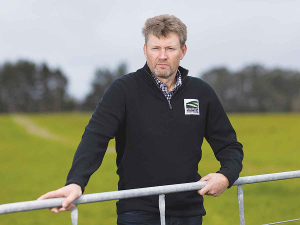Unnecessary box ticking and red tape are set to go under the Government's new RMA reforms - much to the delight of farmers.
Under the reforms just released, the existing RMA will be replaced by two separate acts - one dealing with planning and the other on the natural environment.
Key issues for farmers relate to property rights, starting with the presumption that land use is to be 'enabled', meaning unless there is a significant impact on others or the natural environment, there is no barrier.
The other major reform of note is that regional councils will no longer individually be able to set rules as in the past and one national set of standards will apply over such matters as freshwater, biodiversity and coastal policy. What's more, environmental limits will now be centrally controlled.
The overall emphasis is on 'national standards' rather than the higgledy-piggledy regional approach. To top it off a new national compliance regulator with a regional presence will be established. The big losers in the changes are regional councils.
The reforms are being welcomed by Federated Farmers RMA reform spokesperson Mark Hooper who says farmers are spending way too much time and money on costly resource consents and processes that are holding up investment in things like new water storage and rural infrastructure.
He says the Government has delivered a pragmatic and commonsense plan that will put respect for property rights front and centre. He adds this means that, unless farmers are doing something that will have a negative impact outside their property's boundary, they can essentially do what they want on their own land.
Hooper says the new laws will mean that, where a council takes a property right away, the council will have to pay compensation for the loss of property value.
"Federated Farmers has always pushed back on councils' overzealous use of overlays like Outstanding Natural Landscapes (ONLs), Significant Natural Areas (SNAs), or Sites and Areas of Significance to Māori (SASMs). We're talking about little details like what colour their shed can be and needing a resource consent to put in a new fence, through to bigger hurdles such as being unable to develop or convert their land," he says.
Hooper says Feds also welcomes the shift to national standards, while noting the Freshwater Farm Plan system is the ready-to-go standard for farming. He says it has never made sense for farmers to be farming by resource consent.
"Resource consents are a costly, time-consuming and bureaucratic way to improve farming practice. At the same time, caution needs to be exercised in trying to standardise farming too much, as every farm, catchment and community is different," he says.
Hooper says the Freshwater Farm Plan model, introduced by the previous government and amended by the current, is a tool that can replace the need for a resource consent. He says it's a ready-to-go standard for farming with huge buy-in from farmers, sector groups, and regional councils.


















